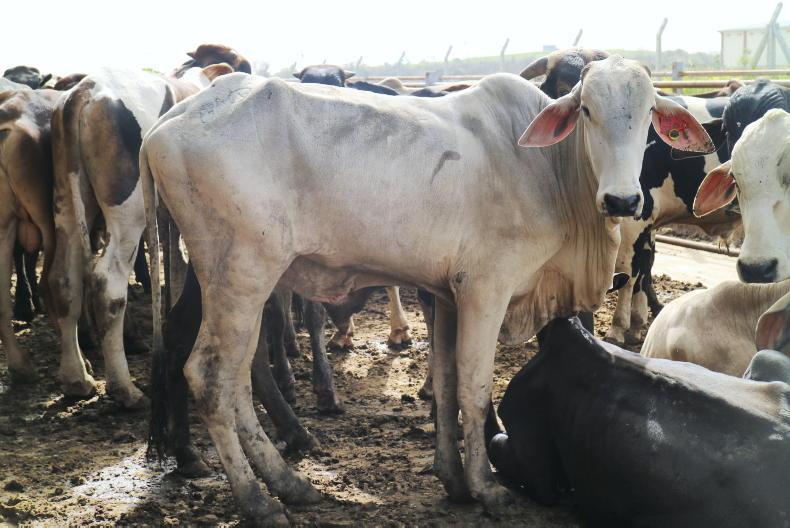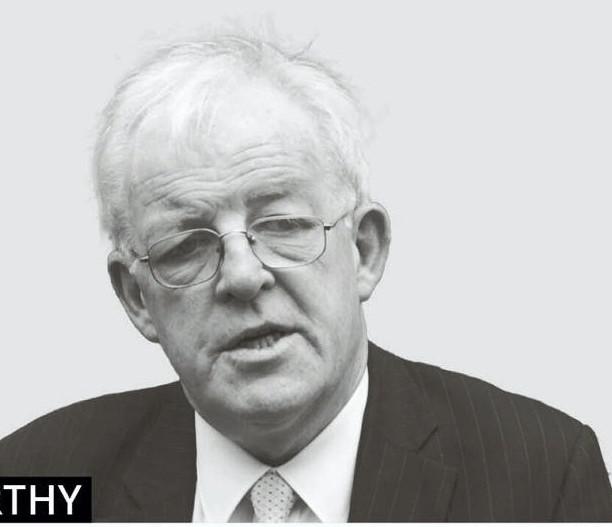Without proper protections, future trade deals with major agricultural exporters such as Brazil and the US will destroy the market for UK farmers and will not be acceptable to consumers, UK food expert Henry Dimbleby has warned.
Giving evidence to a Westminster committee of MP’s on Tuesday, Dimbleby, who recently led a National Food Strategy for England, said that the rushed trade deal announced with Australia in June potentially sets a dangerous precedent going forward.
While the exact details of the Australia deal are yet to be published, Dimbleby believes that it, along with an imminent deal with New Zealand, are likely to break the 2019 Tory Party election manifesto commitment that the government will not compromise on high standards.
[...] we would simply be exporting animal cruelty abroad
As examples, he pointed to the much higher carbon footprint of Australian beef, the clearance of 7,000ha of trees per year to make way for livestock, long journey times to slaughter, and the practice of mulesing (removing skin around the tail) to prevent fly strike in sheep.
“We have animal welfare and climate goals, which if we allow in food produced to lower standards, we would simply be exporting animal cruelty abroad, and carbon emissions abroad,” he told MPs.
You will see a huge amount of very high-carbon footprint Brazilian beef come into our country
He added that the Australia and New Zealand deals should not be a template for deals with Brazil and the US, both of which have the potential to swamp the UK market with product.
“You will see a huge amount of very high-carbon footprint Brazilian beef come into our country and destroy our beef market, and you will see animals treated in a way we would find inhumane, come in from the US,” he said.
Instead, he maintained that government needs to listen to the recommendations made in his report, and also by the Trade and Agriculture Commission. Both advised that a system of volume limits (quotas) and taxes (tariffs) should be used to prevent UK food producers being undermined by low standard imports.
Payments
During his evidence, Dimbleby was also asked about government plans to phase out basic payment scheme (BPS) money to farmers in England by 2028.
Pulling it away quickly could be absolutely disastrous
He warned that if a transition to a new system is handled badly, the risk is that the initial response from farmers to lower payments will be to farm more intensively as they try to make up for the lost income.
“Pulling it away quickly could be absolutely disastrous,” he suggested.
Read more
UK unions compromise on future food import standards
UK trade policy post Brexit needs direction
Without proper protections, future trade deals with major agricultural exporters such as Brazil and the US will destroy the market for UK farmers and will not be acceptable to consumers, UK food expert Henry Dimbleby has warned.
Giving evidence to a Westminster committee of MP’s on Tuesday, Dimbleby, who recently led a National Food Strategy for England, said that the rushed trade deal announced with Australia in June potentially sets a dangerous precedent going forward.
While the exact details of the Australia deal are yet to be published, Dimbleby believes that it, along with an imminent deal with New Zealand, are likely to break the 2019 Tory Party election manifesto commitment that the government will not compromise on high standards.
[...] we would simply be exporting animal cruelty abroad
As examples, he pointed to the much higher carbon footprint of Australian beef, the clearance of 7,000ha of trees per year to make way for livestock, long journey times to slaughter, and the practice of mulesing (removing skin around the tail) to prevent fly strike in sheep.
“We have animal welfare and climate goals, which if we allow in food produced to lower standards, we would simply be exporting animal cruelty abroad, and carbon emissions abroad,” he told MPs.
You will see a huge amount of very high-carbon footprint Brazilian beef come into our country
He added that the Australia and New Zealand deals should not be a template for deals with Brazil and the US, both of which have the potential to swamp the UK market with product.
“You will see a huge amount of very high-carbon footprint Brazilian beef come into our country and destroy our beef market, and you will see animals treated in a way we would find inhumane, come in from the US,” he said.
Instead, he maintained that government needs to listen to the recommendations made in his report, and also by the Trade and Agriculture Commission. Both advised that a system of volume limits (quotas) and taxes (tariffs) should be used to prevent UK food producers being undermined by low standard imports.
Payments
During his evidence, Dimbleby was also asked about government plans to phase out basic payment scheme (BPS) money to farmers in England by 2028.
Pulling it away quickly could be absolutely disastrous
He warned that if a transition to a new system is handled badly, the risk is that the initial response from farmers to lower payments will be to farm more intensively as they try to make up for the lost income.
“Pulling it away quickly could be absolutely disastrous,” he suggested.
Read more
UK unions compromise on future food import standards
UK trade policy post Brexit needs direction










SHARING OPTIONS